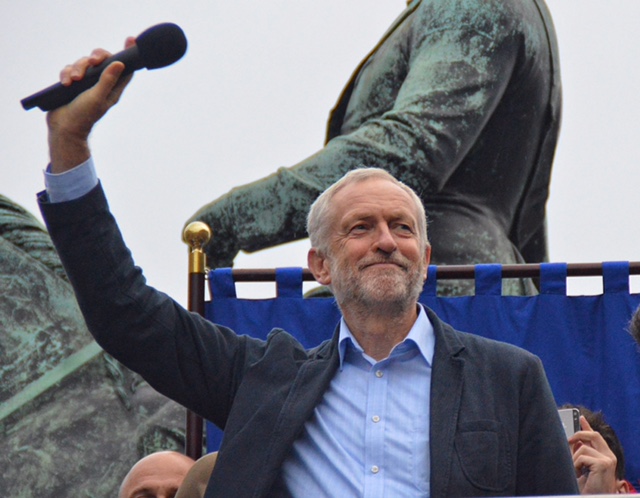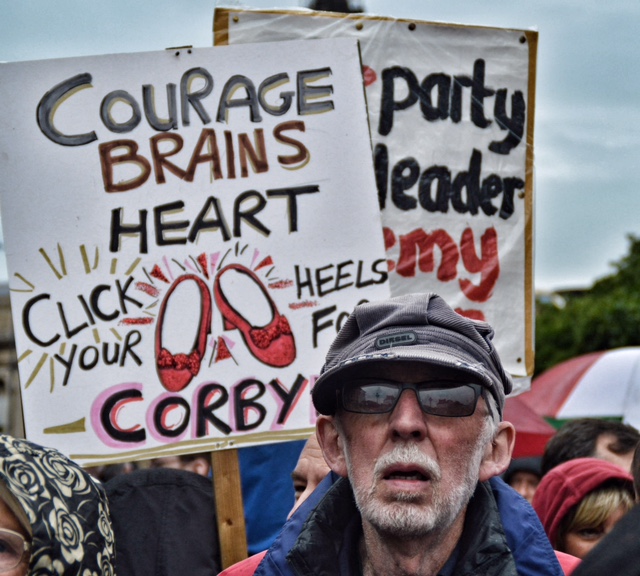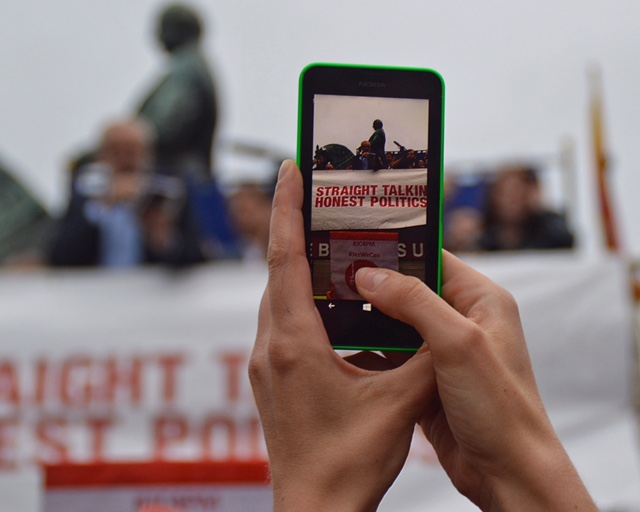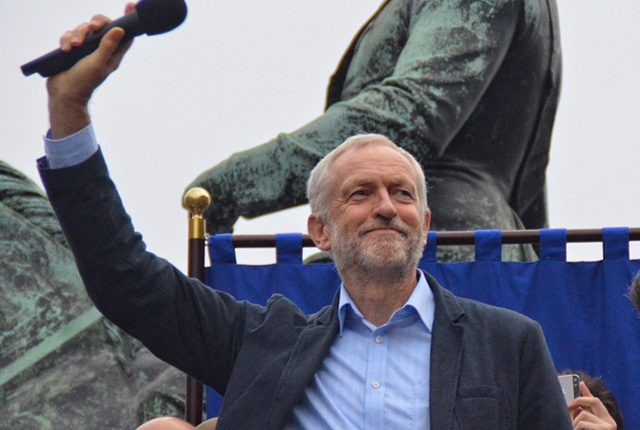More than 300,000 party members backed Jeremy Corbyn but they represent just 0.7% of the 45 million-strong British electorate, says Tony McDonough.

Well the Labour leadership race, which came to its conclusion in Liverpool on Saturday, was bags of fun but it was little more than a precursor to the real battle for the soul and future direction of the Labour Party.
Much has been written, and spoken, about the struggle between the left-leaning rump of party members and its moderate MPs.
But the truth is, neither will decide Labour’s future – that job will go to the British electorate in 2020 or perhaps, even sooner, if Theresa May decides to call a snap General Election for spring 2017.
Jeremy Corbyn’s victory in the leadership contest was pretty much a certainty from the off.
Any notion that a challenger would offer a genuine alternative to his waffling ineptitude quickly disappeared the moment Owen Smith stood up and attempted to sell himself as Corbyn-lite.
Narrow agenda
There are more than half a million people in the Labour Party – a phenomenal growth in membership – and yet, it still represents a tiny fraction of Britain’s 45m+ electorate.
On Saturday it was revealed 313,000 Labour members had voted for Corbyn as leader – which represents 0.7% of the total UK electorate.
All recent polls give the Conservatives a double-digit lead over Labour. That may narrow following Corbyn’s victory but it feels likely any bounce will be short-lived.
On Friday, Labour’s general secretary Iain McNicol warned the Labour leader would have to offer policies beyond a narrow agenda if it wanted to capture the imagination of the wider British public.
“At elections, we cannot choose our opponents, our press or our voters,” he wrote in the Guardian.
Tough task
Much of the evidence suggests Corbyn has a major uphill struggle to achieve this.
The latest piece of data, a poll carried out for the Independent by BGM, of the bottom socio-economic groups, the so-called C2DEs, found views of the leader broadly negative.
These are the people hardest hit by austerity and whom Mr Corbyn claims to represent. But 46% said they thought Mr Corbyn an “election loser”, just 19% believed him a winner and 35% did not know.

So many of his supporters I have spoken with in recent months tell me how pleased they are that the party now has a genuine socialist at its head, forgetting that most people in this country would not describe themselves as such.
When I have pointed out how much more electorally successful a centre ground approach was their response was, I think, remarkable.
Faced with a choice between an MP who will do some of the things they like but would compromise on others to get elected or one that will not compromise one inch, they chose the latter.
In Brighton, the Corbyn-supporting Momentum group is pushing for the deselection of Labour MP Peter Kyle. Mr Kyle was one of only 10 Labour candidates that actually won their seat from the Tories in an otherwise disastrous 2015 General Election.
Yet, they will discard him because he doesn’t toe the Corbyn line. They would rather lose the seat than let him stand again. Just astonishing.
New Labour was phenomenally successful in marginals such as Milton Keynes and Dorset South. The notion that in those areas there is an untapped yearning for socialism is fanciful.
‘No compromise’
I attended the Corbyn rally back in the summer a St George’s Plateau in Liverpool and one thing he said in his speech stayed with me: “No compromise”.
It’s that one phrase that sums up why Corbyn, I believe, is unelectable.
It is his rigid adherence to his values and principles that most endears him to his disciples and yet it is that same inflexibility that will be his undoing.
How, if you hope to appeal to a diverse electorate of 45m people, and a country of 70m, can you not compromise?
Do the maths
At the 2015 General Election, when Ed Miliband ran on a manifesto strikingly similar to Corbyn’s main policy pledges, Labour secured 9.3m votes. The Conservatives won 11.3m votes and UKIP, a shade under 4m.
So more than 15m people voted for right-wing parties.
UKIP’s performance was the most remarkable. It quadrupled the number of votes it had secured in 2010.
The party itself may be in some disarray since the departure of Nigel Farage but it’s anti- immigration, anti-establishment mindset is now firmly entrenched in Labour’s traditional working class heartlands.
So, in 2015, the electorate moved sharply to the right. Labour’s response has been to move sharply to the left – it couldn’t have acted more counterintuitively if it tried.

Migration muddle
The discussion around immigration has become toxic in recent years. My personal view is that migration is overwhelmingly positive for the UK and I think we need more of it, not less.
However, the reality is that is not the prevailing view among large sections of the British working classes.
Whenever the subject came up in the Labour leadership campaign debates, both Jeremy Corbyn and Owen Smith shifted uncomfortably and quickly waffled a few platitudes. They couldn’t wait to get off the subject.
Labour has no answer to UKIP’s ugly but phenomenally successful narrative on migration. Unless it finds one, its traditional heartlands will be lost.
By re-electing Jeremy Corbyn as their leader, the members of the Labour Party may have condemned the very people they claim to want to help, the poor and the dispossessed, to a generation of reactionary and brutal Tory policies.

